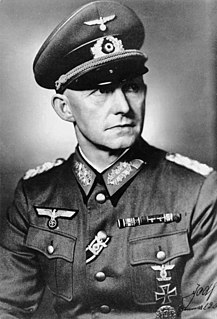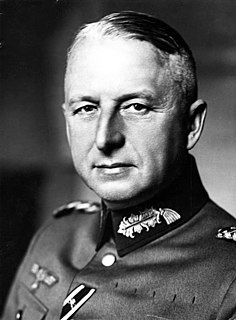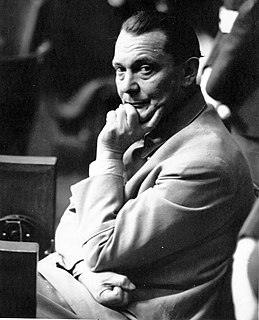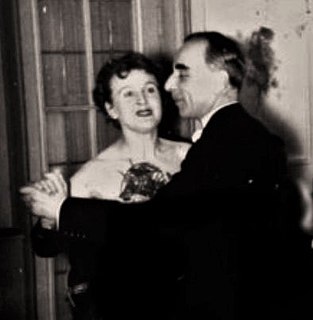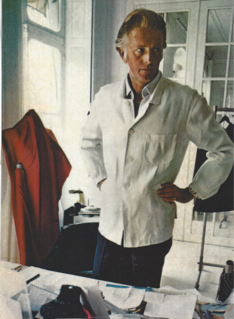A Quote by Alfred Jodl
Hitler [had an] excess of imagination, which very frequently foresaw what would happen but also very often went astray.
Related Quotes
He was not only the most brilliant strategist of all our generals, but he had a good political sense. A man of that quality was too difficult for Hitler to swallow for long. At conferences Manstein often differed from Hitler, in front of others, and would go so far as to declare that some of the ideas which Hitler put forward were nonsense.
You're talking to a modern, nice, affable German person and they're saying to you something like 'You know, vell, it's a critical time now for Germany within Europe, also globally, economically ve are pretty good, ve have been better. But ve are very vibrant in the theater and arts...' and all the time you'll be listening to this, you're thinking Mmm, yeah, mmm... Hitler, Hitler, Hitler, Hitler, Hitler.
Isaac Watts, of course, is a hymn writer in the tradition of Congregationalism who lived in the seventeenth and early eighteenth century. He is very interesting and important because he was also a metaphysician. He knew a great deal about what was, for him, contemporary science. He was very much influenced by Isaac Newton, for example. There are planets and meteors and so on showing up in his hymns very often. But, again, the scale of his religious imagination corresponds to a very generously scaled scientific imagination.
That which men suppose the imagination to be, and to do, is often frivolous enough and mischievous enough; but that which God meant it to be in the mental economy is not merely noble, but supereminent. It is the distinguishing element in all refinement. It is the secret and marrow of civilization. It is the very eye of faith. The soul without imagination is what an observatory would be without a telescope.
Obstinacy, sir, is certainly a great vice; and in the changeful state of political affairs it is frequently the cause of great mischief. It happens, however, very unfortunately, that almost the whole line of the great and masculine virtues--constancy, gravity, magnanimity, fortitude, fidelity, and firmness--are closely allied to this disagreeable quality, of which you have so just an abhorrence; and in their excess all these virtues very easily fall into it.
Hitler had the willpower of a demon and he needed it. If he didn't have such a strong willpower he couldn't have achieved anything. Don't forget, if Hitler had not lost the war, if he did not have to fight against the combination of big powers like England, America, and Russia - each one he could have conquered individually - these defendants and these generals would now be saying, 'Heil Hitler,' and would not be so damn critical.
I worked very hard to try and figure out what I thought and I believed that we were going to succeed and that revolutions would happen globally and we would be a part of that and we would have then not capitalism. We would have values based on human lives, not profit. We would actually transform the kinds of ways people built love and built community. It was a very shocking thing to me, out of the end of the 70s and the beginning of the 80s, to realize that that dream - while I still believed in it - was not going to happen in the way that I had hoped.
